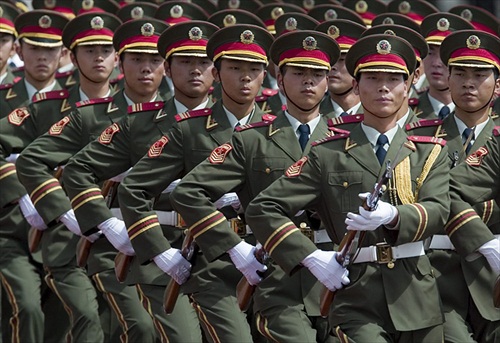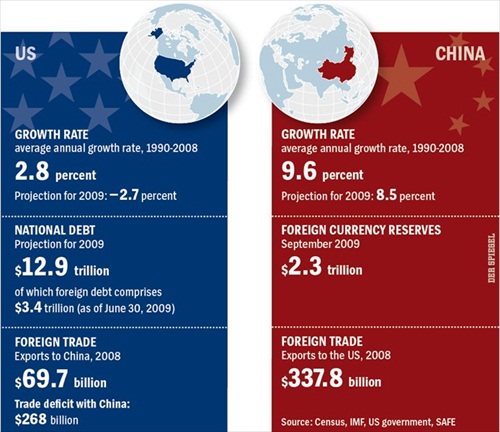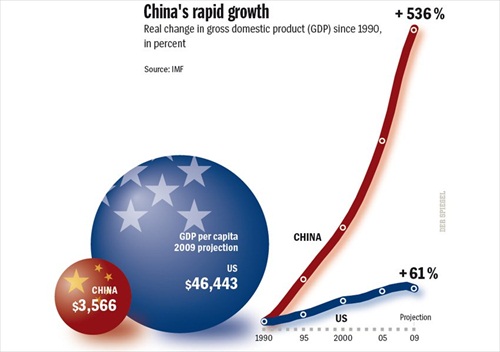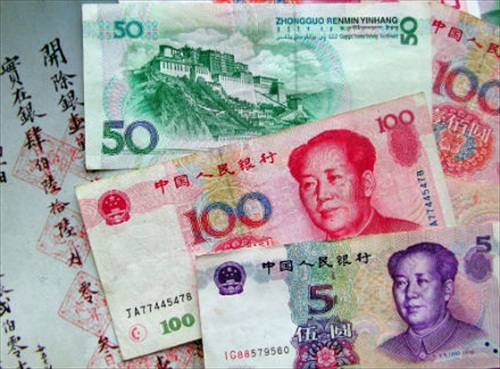For centuries, gold has been recognized as one of the best ways to preserve one’s wealth and maintaining its purchasing power. Even in ancient times during the rule of the Egyptians and Greeks, gold served its purpose not only for its beauty but also for the function of being a means of exchange and also for its power to change one’s life. But as with anything that has any value attached to it, there will always be ups and downs in its price discovery mechanism.
 The Gold market has been relatively stable since it retraced from its recent high in August of $1927 and a low of $1529 on September 16th. Volatility of the VIX indicator has somewhat stabilized. In our previous article, we recommended a sell order in August after a mini parabolic run in the Gold price. So where to now?
The Gold market has been relatively stable since it retraced from its recent high in August of $1927 and a low of $1529 on September 16th. Volatility of the VIX indicator has somewhat stabilized. In our previous article, we recommended a sell order in August after a mini parabolic run in the Gold price. So where to now?
 The Gold market has been relatively stable since it retraced from its recent high in August of $1927 and a low of $1529 on September 16th. Volatility of the VIX indicator has somewhat stabilized. In our previous article, we recommended a sell order in August after a mini parabolic run in the Gold price. So where to now?
The Gold market has been relatively stable since it retraced from its recent high in August of $1927 and a low of $1529 on September 16th. Volatility of the VIX indicator has somewhat stabilized. In our previous article, we recommended a sell order in August after a mini parabolic run in the Gold price. So where to now?In view of both political and economic developments throughout the world, we have come to the conclusion that it is about time to be bullish on Gold again. There are both fundamental and technical reasons to be bullish on Gold at this moment in time.
Fundamentally, there are various reasons why Gold price is about to head north soon.
FIRST, the demand for Gold in Asia will soon take off for the reasons that it is approaching end of year festivities for various communities. As for the Indians, the festival of lights or ‘Deepavali’ , is going to fall on the 26th October. Traditionally, during such festivals the Indian communities will buy gold jewelry either for themselves or as a gift for their relatives and hence the demand for gold will soar. According to Srivanesan, an official from the Indian Gold Dealer Association, the demand for Gold during such festive seasons, normally ‘will increase by more than 30%’.
Come November and December, it will be the wedding season in Asia. The Muslim communities in South East Asia will normally hold their weddings during the school holidays and it could not be better timing, coinciding with the year-end long school holidays. Unlike the Chinese and Indians who choose their wedding dates using Feng Shui and Vaastu Sastra (Indian version of Feng Shui), the Muslim communities tends to have their weddings during holidays because it is the time where everyone is free and relatives are able to give a helping hand.
On top of that, the coming of the Lunar Chinese New Year also provides another reason for the increased demand for gold. Traditionally, Chinese families will buy gold either for themselves or as a gift to their loved ones during the festive season. Goldsmiths will also churn out special editions or collectibles according to the zodiac sign of that particular year. Moreover, the month of December and January are also considered as auspicious months for getting married for the Chinese and hence the demand for Gold.
SECOND, making gold an investment is now considered trendy among the younger generations. Gold again is the choice for jewelry instead of diamonds and precious stones like rubies, emeralds and etc due to the value that is attached to gold. Moreover due to persistent marketing and educating efforts by the governments in Asia, investment in physical gold through the gold bullion coins have increased by multiple folds. A check on several banks here in Malaysia showed that the Kijang Gold coin is unavailable due to excessive demand.
Across the South China Sea, China has installed its first Gold Vending machine on the 1st week of October, to join other countries such as USA, Germany, Italy and the United Arab Emirates in hosting an ATM machine that dispenses Gold coins and bullion. The public can now purchase certified gold coins with credit cards and cash through such machines. The Chinese government is keen to promote the sales of gold in the country and its effort has seen an increase in demand for gold by 27% last year. In order to accommodate the increased demand for gold, the Chinese government plans to install 2,000 more ATM gold vending machines throughout China by next year.
A report by the World Gold Council in May this year showed that China has overtaken India as the world’s largest gold consumer, consuming about 91 tons which translates to about an increase of about 21% year on year.
THIRD, the ratio of Gold to Foreign exchange in Asian countries is very low compared to Western countries. If you look at the World Gold Council’s Dec, 2010 chart for Gold/Forex reserves, the biggest holder of gold/forex are the Eurozone countries and US.
Country Gold/Forex Tonnes
Portugal 81.1 % 421
Greece 78.1 % 111
USA 74.7 % 8133
Germany 71.7 % 3401
Italy 71.4 % 2451
France 66.1 % 2435
India 8.1 % 614
Japan 3.0 % 765
China 1.7 % 1054
Malaysia 1.5 % 36
South Korea 0.2 % 14
You would also notice that Asian countries are having the lowest Gold/Forex ratio even though China, India and Japan have one of the largest tonnage of gold in its reserves. What does it tells us? It simply tells us that Central Banks in Asia are about to go for a spending spree in gold buying in order to increase its ratio of Gold/Forex.
With China’s forex reserves standing at $3.2 trillion, Japan’s $1.1 trillion and India’s $311 billion, there will be a lot of gold buying among themselves in the coming months and years. When Central Banks starts ramping up their purchase of gold, it might create a panic buying in gold and thus will push up its price ‘fast and furious’. Gold price discovery can happen in days unlike in housing where it may take months and years.
The figures supplied by the WGC might not reflect the true holdings of Gold by the Central Banks of the world. China might be holding much more than the reported 1053 tons because there have been a significant drop in Gold exports from China in recent years.
For all you know, Central Banks may have been the ones who were controlling the gold trade all this while. They have been manipulating the gold market through tactics like ‘Pump and Dump’ and also controlling the gold price through exchanges like SGE and CME by increasing the margins. When the price collapse, they will be quietly collecting gold to replenish their vaults like what is happening now. As for the Western countries like USA and Europe, if the ‘Empty Vault’ theory holds true then they might be holding much less gold than reported, and heck, all hell will then break loose in gold prices.
FOURTH, Gold prices will always be supported as long as debts are monetized and inflation remains high. According to the GAO, so far the FED has provided more than $16 trillion of bailout money to banks. It is universally known that you can’t fight debt with more debts and by printing more money to bailout ‘too big to fail’ banks will only result in further inflation of the prices of goods and services.
With the rate of inflation running at 9% in India and 6% in China, and food inflation running at more than 10%, there are no reasons why the price of gold should go down any further. This is because gold will always be a hedge against inflation and the demand will always be there during bad times.
FIFTH, it’s the China factor. China has been quietly accumulating gold for the past few years. According to Wikileaks :
"China increases its gold reserves in order to kill two birds with one stone"
"The China Radio International sponsored newspaper World News Journal (Shijie Xinwenbao)(04/28): "According to China's National Foreign Exchanges Administration China 's gold reserves have recently increased. Currently, the majority of its gold reserves have been located in the U.S. and European countries. The U.S. and Europe have always suppressed the rising price of gold. They intend to weaken gold's function as an international reserve currency. They don't want to see other countries turning to gold reserves instead of the U.S. dollar or Euro. Therefore, suppressing the price of gold is very beneficial for the U.S. in maintaining the U.S. dollar's role as the international reserve currency. China's increased gold reserves will thus act as a model and lead other countries towards reserving more gold. Large gold reserves are also beneficial in promoting the internationalization of the RMB."
So, no doubt there will be continuous demand for gold from the Chinese Authorities in the coming months and years and hence provide a support for gold price.
SIXTH, another group of investors that we have overlooked is the funds industry. The funds industry controls most of the wealth around the world, be it hedge funds, sovereign wealth, insurance companies, mutual funds, pension funds and etc. It is estimated that they control about $31 trillion worth of assets which is more than double the GDP of U.S which is about $14 trillion. It is estimated that the funds industry hold less than 0.15% of their assets in gold which translates to about $46.5 billion.
What will happen when the fund industry realizes that they are currently underinvested in gold? Especially, if the ongoing financial crisis in Europe takes a turn for the worse, and creditors liquidate Treasuries en masse, and if bonds and stocks provide lower than expected returns and etc. What if these fund managers decided to increase their exposure to gold say by another 0.15%? This will represent another $46.5 billion of fresh funds available for new buying. Just imagine what impact it will have on the price of gold? I am sure in a year or two, we will be saying that gold at $2000 is cheap.
LASTLY, from a technical perspective Gold since retraced from August has been in a sideway consolidation for the past month and the market seems to be having a strong support at 1600. It is now stabilizing around the 1600-1650 level and with the tightening of the Bollinger bands, it seems like it is about to breakout from it.
Malaysia Chronicle
























